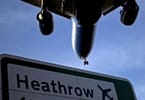A snapshot of corporate travel for Cisco Systems Inc., which ranked among the top 25 for travel spending in 2008, can’t be very encouraging for airlines and hotels hoping for a rebound in business travel.
After an overhaul of its policies and introduction of a new travel booking tool, the San Jose, Calif.-based company has cut nearly all travel for internal meetings and deeply cut its overall spending, which Travel Procurement magazine estimated at $300 million.
By using a tool from Southlake’s Sabre Holdings Corp.’s GetThere division and pushing employees to videoconference instead of fly, Cisco’s travel budget doesn’t seem likely to rise any time soon.
“We’ve saved above the 50 percent we set out to save when we first started this,” said Susan Lichtenstein, a director of finance who overhauled Cisco’s travel program.
Cisco’s savings may offer hope for other companies, but they don’t bode well for airlines and hotels that rely on business travelers.
In past years, hotels and airlines had the upper hand in setting rates for business travel. But with companies finding ways to “travel smarter” through better tracking tools and discouraging all but the most necessary trips, those days may be over.
“It’s been a sellers’ market for the past couple of years, and travel buyers are looking for their pound of flesh,” said Henry Harteveldt, a travel and technology analyst for Forrester Research.
Brutal negotiations
He said upcoming negotiations between big companies and travel providers will probably be brutal.
“I’ve heard of companies that want to renegotiate their current deals that run through the end of the year,” he added. “The power resides with the corporate travel managers.”
At Cisco, the company’s online booking site makes employees declare the purpose of the trip and reminds them about corporate policy, said Lichtenstein, who discussed the company’s results at a summit for Sabre’s GetThere this week in Fort Worth.
If Cisco’s people still decide to travel, the site pushes them to book with the company’s preferred partners to keep costs down. Trips booked within three days of departure require management approval, which encourages bookings in advance for lower fares.
No rebound seen
But that trend isn’t good news for airlines that depend on short-notice business travelers to pay their highest fares. And in earnings conference calls this month, airline executives have said there are few signs of a business travel rebound to stoke their profits.
“We’re all suffering from a decline in business travel demand that is evident throughout the travel industry, whether it’s airlines, hotels or restaurants – you name it,” said Southwest Airlines chairman and chief executive Gary Kelly. “Post-summer, we’re prepared for significant weakness.”
Airlines already have pulled significant capacity from the skies in an attempt to keep fares up, but hotels don’t have that luxury with unused rooms, Harteveldt said. Leisure travelers may find great deals on hotels in the future if companies hold fewer meetings.
The hope for hoteliers and airlines may lie in what Harteveldt believes will be a wave of entrepreneurs arising from the recession who will travel on behalf of their start-ups.
“Those businesses collectively spend an enormous amount of money on travel,” he said, adding that airlines and hotels have developed marketing efforts to get small-businesses to use them exclusively.
Travel booking companies such as Sabre see encouraging signs as the economy slowly picks up.
“We’re seeing what I would call some stability in our business,” said Sam Gilliland, Sabre chief executive, at the GetThere event.
Going for volume
Gilliland said that companies such as Cisco are using fewer preferred hotels and airlines. Instead, they’re promising a smaller group of vendors more market share in exchange for discounts and incentives.
“You have to be able to deliver the volumes in these new deals,” Gilliland said. “Before this, hotels and airlines would still work with the company if they didn’t quite meet the numbers; now they’re not going to do that.”
Despite having the leverage, companies need to be careful not to take too great an advantage over their travel suppliers, Cisco’s Lichtenstein said.
“You need a deal for good times and for bad,” she said. “We need to keep our preferred partners viable.”
WHAT TO TAKE AWAY FROM THIS ARTICLE:
- At Cisco, the company’s online booking site makes employees declare the purpose of the trip and reminds them about corporate policy, said Lichtenstein, who discussed the company’s results at a summit for Sabre’s GetThere this week in Fort Worth.
- The hope for hoteliers and airlines may lie in what Harteveldt believes will be a wave of entrepreneurs arising from the recession who will travel on behalf of their start-ups.
- , which ranked among the top 25 for travel spending in 2008, can’t be very encouraging for airlines and hotels hoping for a rebound in business travel.






















